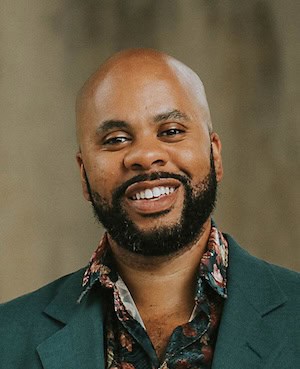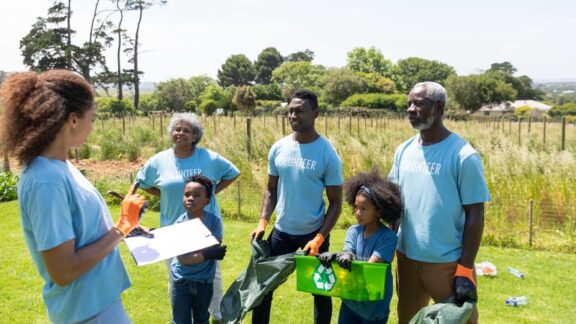Despite being a self-professed loner, this newly retired woman craves connection after retirement but is having trouble finding it. Advice columnist Eric Thomas weighs in. Updated Oct. 28, 2025, with reader ideas for making connections.
Dear Eric:
I retired a couple of years ago. I, like many people, I think, have realized that most of my friends and even acquaintances were work-related. My family doesn’t live close. I’ve always been a loner, so this doesn’t normally even bother me. I recently had a health issue come up where I needed a “responsible adult” to drive me home from surgery and I had a hard time coming up with someone.
Most of my interests are ones done alone and, when I looked into senior centers, the things they had were all craft stuff that I have no interest in learning. I’m a woman who has never really had much in common with other women and, at my age, have no interest in an actual relationship.

I had a couple of really bad experiences with organized religion in my youth and I’ve tried to find a new church over the years but find myself uncomfortable with the things I see and hear. I tried volunteer work, but like many towns, they are pretty much run by the churches and, after I kept politely turning down offers to come to their church, I found myself ignored or ostracized.
I know a lot of the problem is on me, but how do you make a meaningful connection after retirement? How do you make friends or at least another responsible adult when you are over 60?
– Loner but Not Alone
Dear Loner:
I don’t want to negate your experience, but I’d gently suggest that much of this problem is not on you, actually. Many people, of all ages, struggle to find and maintain social connections. And many adults find social life in retirement to be a new, surprising challenge.
One option you may not have considered is seeking out groups or activities that aren’t necessarily geared toward seniors. Perhaps you’ll find more in common with the local chess club or a sports league, for instance. Intergenerational friendship is one of life’s richest rewards and you may find it easier to connect with some of these organizations.
You might also consider getting a part-time job that you like and seeing if you jibe with your coworkers. If you don’t, you don’t have to keep the job. But connections can come from that as well.
Lastly, while it doesn’t necessarily address the “responsible adult” need right away, many people find more connection through online groups – based around shared interests, hobbies, advocacy, or projects – than they do in their local community. These connections can then trickle down locally – people might have nearby connections, or they could themselves be closer than you think.
Reader ideas for making connection after retirement
Dear Readers:
In September, “Loner But Not Alone” asked for advice about making connections. She was a retired self-described loner who realized that most of her social connections had been through work. Many of you replied with fantastic, creative suggestions that would surely be of use to anyone, of any age, seeking community. I’ve attached a few below.
- “Look at the list of charities to which you already contribute. Some of them may offer volunteer activities where you will find people who share your interests. Working with fellow volunteers has started many new friendships (in the 40 to 90 age range) and has taken me in unexpected directions, e.g. who knew tending animal rescues could lead to a fellow reader of British mysteries?”
- “There is an incredible network of women’s clubs in America devoted to community service that began at the end of the 19th century. Even small communities like mine (320 population), have a thriving, very active club. The national organization, located in Washington, D.C., is called the General Federation of Women’s Clubs (gfwc.org).”
- “I have been involved with local theater for decades, and I can say that you can meet several people from various age groups and gain friendships that endure for years. Beyond acting, there is a tremendous amount of backstage work that needs volunteers, from costuming to prop collecting to set construction to program design.”
- “Go where the music is playing, attend the county events in the parks, attend festivals that are happening and attend some sporting events at restaurants, sports bars and arenas.”
- “Lifelong Learners Organizations exist in 124 locations, attached to colleges and universities and are called OSHER Lifelong Learning Institutes.”
- “Find out if your local library has a Friends of the Library group or start one if they don’t. Many libraries also have Maker Spaces and classes.”
- “I posted a note on our Nextdoor website to see if there were other women over 60 who might want to get together occasionally for lunch, etc. I had 56 positive replies! We met in two groups at a restaurant and the group soon evolved to include a weekly breakfast and a weekly happy hour at local restaurants.”
- “Picking up trash seems disgusting but a great way to meet neighbors.”
Related: The Effects of Loneliness on Senior Health
 R. Eric Thomas (he/him) is a national bestselling author, playwright, and screenwriter. His accomplishments include “Eric Reads the News,” a daily humor column covering pop culture and politics, serving as the interim Prudie for the advice column “Dear Prudence,” and “Congratulations, The Best Is Over.”
R. Eric Thomas (he/him) is a national bestselling author, playwright, and screenwriter. His accomplishments include “Eric Reads the News,” a daily humor column covering pop culture and politics, serving as the interim Prudie for the advice column “Dear Prudence,” and “Congratulations, The Best Is Over.”
Send questions to eric@askingeric.com or P.O. Box 22474, Philadelphia, PA 19110. Follow him on Instagram and sign up for his weekly newsletter at rericthomas.com.
©2025 Tribune Content Agency, LLC.
Find more words of wisdom like finding connection after retirement – from illnesses to insensitive parents to a husband’s mid-life crisis, and more:
Boomer Advice for Life department
For advice targeted to senior adults and their families – caregiving, grandparenting, retirement communities, and more:




